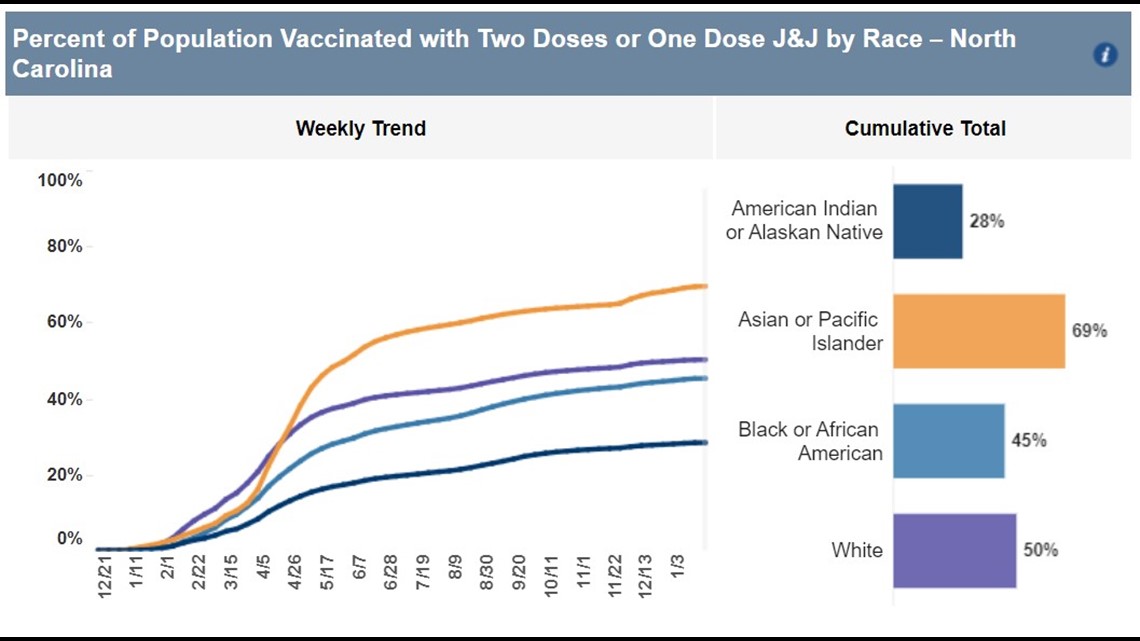CHARLOTTE, N.C. — As North Carolina continues to see record-setting COVID-19 numbers, health officials warn that some groups are making up bigger shares of those cases than others.
After closing the gap in some respects, health leaders report seeing disproportionate cases and hospitalizations in Black and Hispanic North Carolinians once again.
North Carolina's Department of Health and Human Services reports that at the beginning of December, case rates in the Black community were below those of whites. However, by Dec. 26, those case rates were not only higher again, but they were also double that of white residents.
NCDHHS also states the Hispanic population is seeing 57% higher case rates than the non-Hispanic population.
Health officials said those higher case rates are translating into higher hospitalization rates. According to NCDHHS, in the first 17 days of the new year, Black residents had the highest hospitalization rates in the state, followed by American Indians.
Thursday, COVID-related patient counts hit a record for the third day in a row, with more than 4,700 patients reported statewide.
The state's new Health and Human Services Secretary said the reemerging trends underscore the need to distribute pandemic tools equitably.
“Vaccines, boosters and masks are the best tools that we have to prevent severe illness, hospitalization and death from COVID-19,” Kody H. Kinsley, NCDHHS Secretary, said. “Equity has been embedded in our pandemic response from the beginning, and we continue to focus on delivering life-saving tools to historically marginalized populations during this surge.”
As of Thursday, NCDHHS data showed Black and American Indian residents have the lowest full vaccination rates (two shots of an mRNA vaccine or one shot of the Johnson & Johnson vaccine) -- 45% of Black North Carolinians are fully vaccinated, while 28% of American Indians in North Carolina are fully vaccinated.


Fifty percent of North Carolina's white population is fully vaccinated, and 69% of the state's Asian or Pacific Islander population is fully vaccinated.

